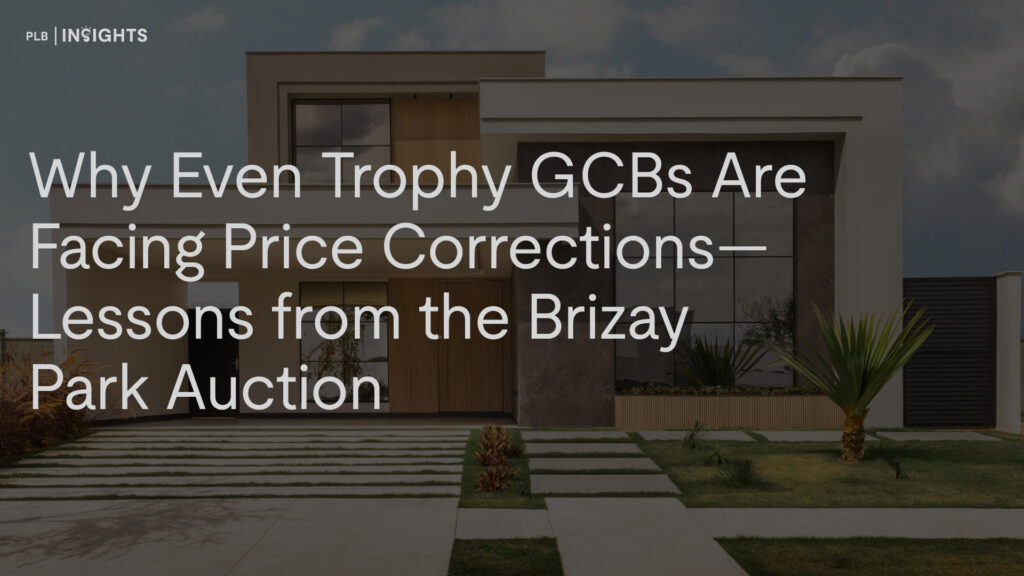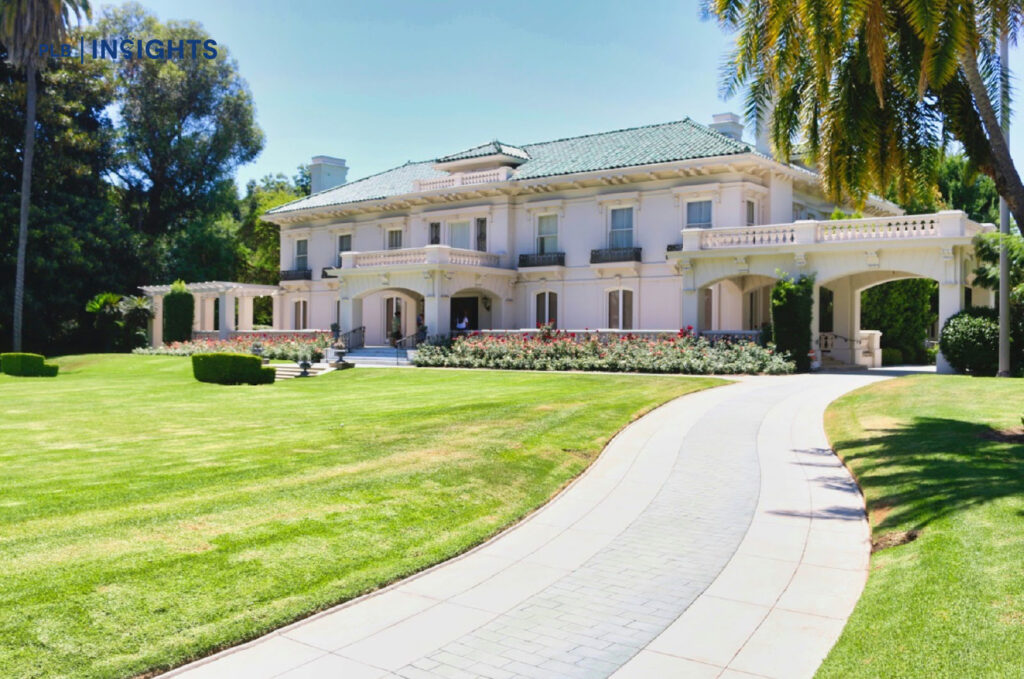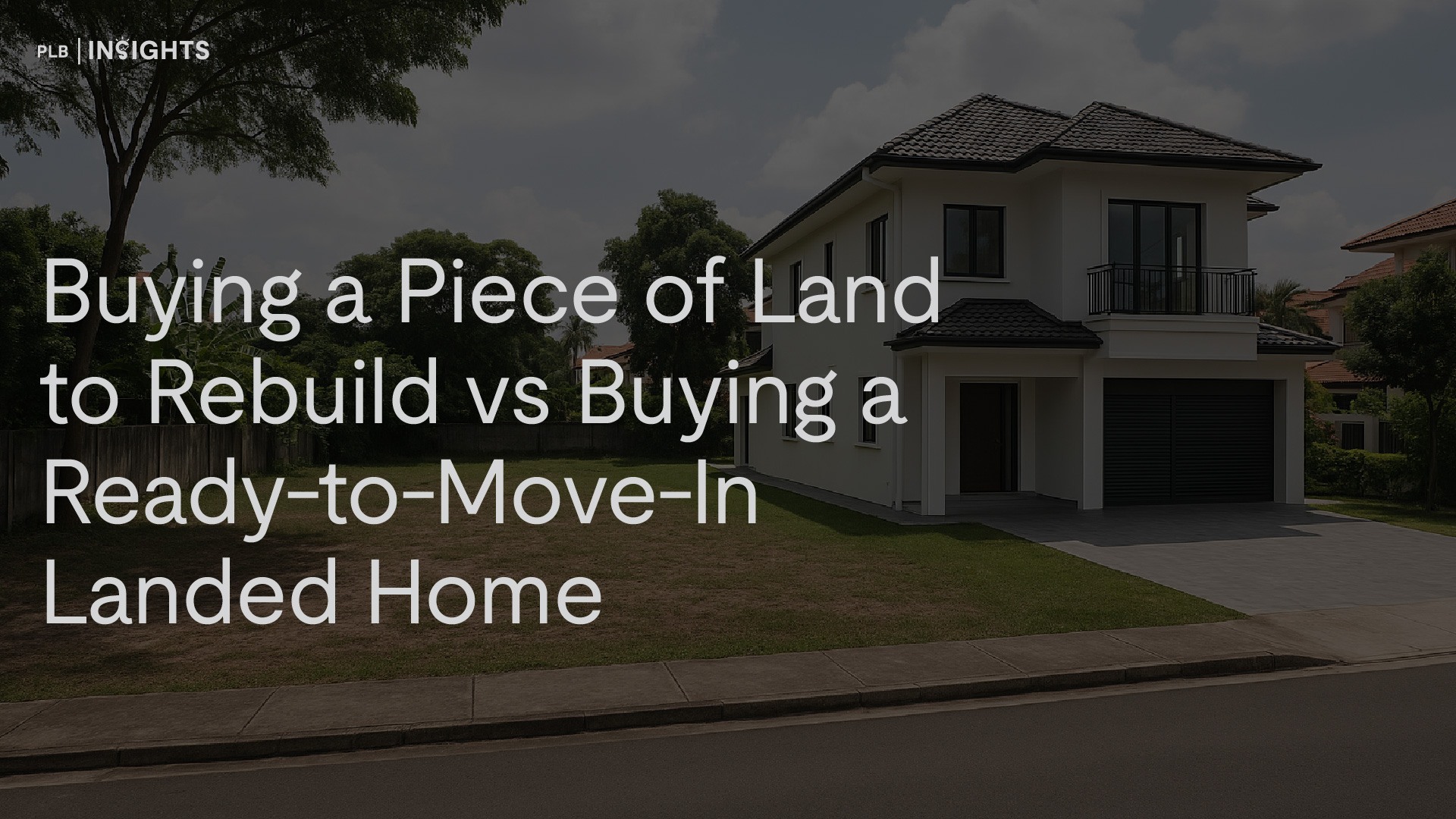
When a prominent Good Class Bungalow (GCB) owner slashes their asking price by nearly half within a year, the pure landed property market takes notice.
Teo Hock Seng, executive chairman of Komoco Holdings, recently put his Brizay Park GCB up for auction at a revised guide price of $36 million—down from the initial $66.7 million it was listed for in March 2024. That’s a sharp $30 million adjustment, translating to a land rate of around $1,555 psf for the 23,148 sq ft freehold site.
On the surface, it’s a startling price drop for a home located in one of District 10’s most established GCB Areas. But beyond the headline figure lies a deeper narrative—one that offers insight into where the GCB market is heading and how both buyers and sellers are recalibrating their expectations.
The Auction Strategy: Seeking Price Discovery
The choice to sell via auction isn’t a typical move for owners of GCBs. Traditionally, such properties are transacted through discreet private treaty negotiations. But in Teo’s case, the decision to go under the hammer suggests an openness to letting the market speak.
Auctions operate differently from regular sales: they bypass the option-to-purchase process and move directly to a sale and purchase agreement. That means serious buyers must act quickly—and sellers must be prepared for immediate outcomes, or lack thereof.
Auctions provide a transparent way to gauge market sentiment. And in today’s climate, transparency can be both revealing and sobering.
From Aspirational to Acceptable: The Reality Gap
When Teo first listed the property in 2024, the asking price of $66.7 million (about $2,880 psf) was significantly above the area’s prevailing median prices. While it’s not unusual for GCB owners to price aspirationally—especially for well-maintained homes with provenance—the reality is that buyers are increasingly cautious about paying a premium.
This sentiment is reflected across the broader GCB market. While Brizay Park is a coveted enclave, buyers today are more data-driven, more valuation-sensitive, and less willing to pay “legacy pricing” simply for status. Many have also become savvier at negotiating, recognising that rarefied supply does not always equate to immediate demand—especially when global uncertainty persists and liquidity is less abundant.
Market Trends: More Auctions, Fewer Deals

Teo’s decision to sell by auction coincides with a broader uptick in auction activity across Singapore’s residential market. In 2024 alone, there were 418 auction listings—up 16.8% year-on-year. Owner sales accounted for more than half of these, continuing a trend that started in 2021.
But more listings haven’t translated into more successful sales. The overall success rate for auctions in 2024 was just 3.6%, down from the 10-year average of 5.1%. Even among GCBs, high-profile auction attempts have largely fallen flat.
Two notable GCB auctions in 2024—one at King Albert Park and another along Jervois Road—both failed to secure buyers. These properties, too, were priced at what many perceived as optimistic levels, despite being in prestigious locations.
This highlights a persistent challenge in today’s landed market: the bid-ask gap. Sellers want to achieve prices aligned with past highs; buyers expect a discount, particularly when purchasing through a platform typically associated with distressed sales.
Private Treaty Still Prevails—But at Adjusted Prices
Interestingly, while auctions may not result in immediate sales, they often set the stage for deals to be struck later via private treaty. The auction becomes a testing ground, giving sellers real-time feedback on where buyer appetite lies.
Many auctioned properties end up transacting outside the auction at adjusted prices. This has become a common pathway for high-end landed homes, including GCBs.
For discerning buyers, this dynamic presents an opportunity. Properties introduced at auction may later become available for negotiation in quieter settings—often at more palatable prices, especially if sellers are motivated or time-sensitive.
What This Means for Landed Buyers and Sellers

The key takeaway? The GCB market isn’t in distress—it’s undergoing a reality check.
For sellers, particularly those looking to exit their GCB holdings within a reasonable timeframe, this means re-evaluating expectations. Valuation fundamentals still hold sway, even in trophy segments. Pricing within a reasonable range of recent caveats is becoming more crucial to attracting genuine interest.
For buyers, especially those entering the landed segment for the first time, this moment may offer rare windows of opportunity. While GCBs are still a long-term play—and not subject to wild discounts—the right mix of patience, timing, and due diligence could lead to value buys in enclaves that are traditionally hard to access.
In Teo’s case, the property was originally purchased for $11.58 million in 2007. Even at the reduced guide price of $36 million today, the upside from a holding perspective remains substantial. It underscores the generational capital preservation qualities of Singapore’s GCBs—properties that may fluctuate in asking price but rarely in long-term desirability.
Bigger Picture: GCB Fundamentals Remain Strong

Despite the visible recalibration, it’s important to contextualise this within broader market dynamics. GCBs remain a tightly regulated, low-supply asset class. Only Singapore citizens can purchase them, and the available stock—especially within established zones like Brizay Park, Cluny, Nassim, and White House Park—is extremely limited.
Even with price adjustments, we’re not seeing a surge of distressed selling. Most owners continue to hold significant equity and are not under pressure to liquidate. In fact, many auction listings are driven by strategy rather than necessity.
The more accurate read is this: the GCB market is not weakening, but normalising. Gone are the post-pandemic frenzy days where aggressive bidding outpaced valuation norms. What we’re seeing instead is a maturing market—where due diligence, patience, and price realism are once again taking centre stage.
Final Thoughts
Teo Hock Seng’s auction may not define the entire GCB segment, but it signals something worth watching—how Singapore’s most exclusive pure landed category is responding to a changed environment.
This event is a timely reminder that the market’s resilience is not just measured by soaring prices, but also by its ability to recalibrate with discipline. When buyer and seller expectations eventually align, deals will continue to happen—quietly, confidently, and at prices that reflect the true worth of Singapore’s most prized homes.
Join our Landed VIP Club to receive exclusive insights, research breakdowns, and invites to upcoming clinics where we unpack the trends behind Singapore’s most resilient property class.
Navigating Singapore’s landed property market doesn’t have to be daunting. Our experienced consultants are here to provide personalised guidance and expert insights, ensuring a smooth journey to finding your ideal home. Whether you’re seeking a legacy investment or a dream property for your family, we’re ready to help you make the right choice. Contact us today to turn your aspirations of owning a landed home into a seamless and rewarding reality.








